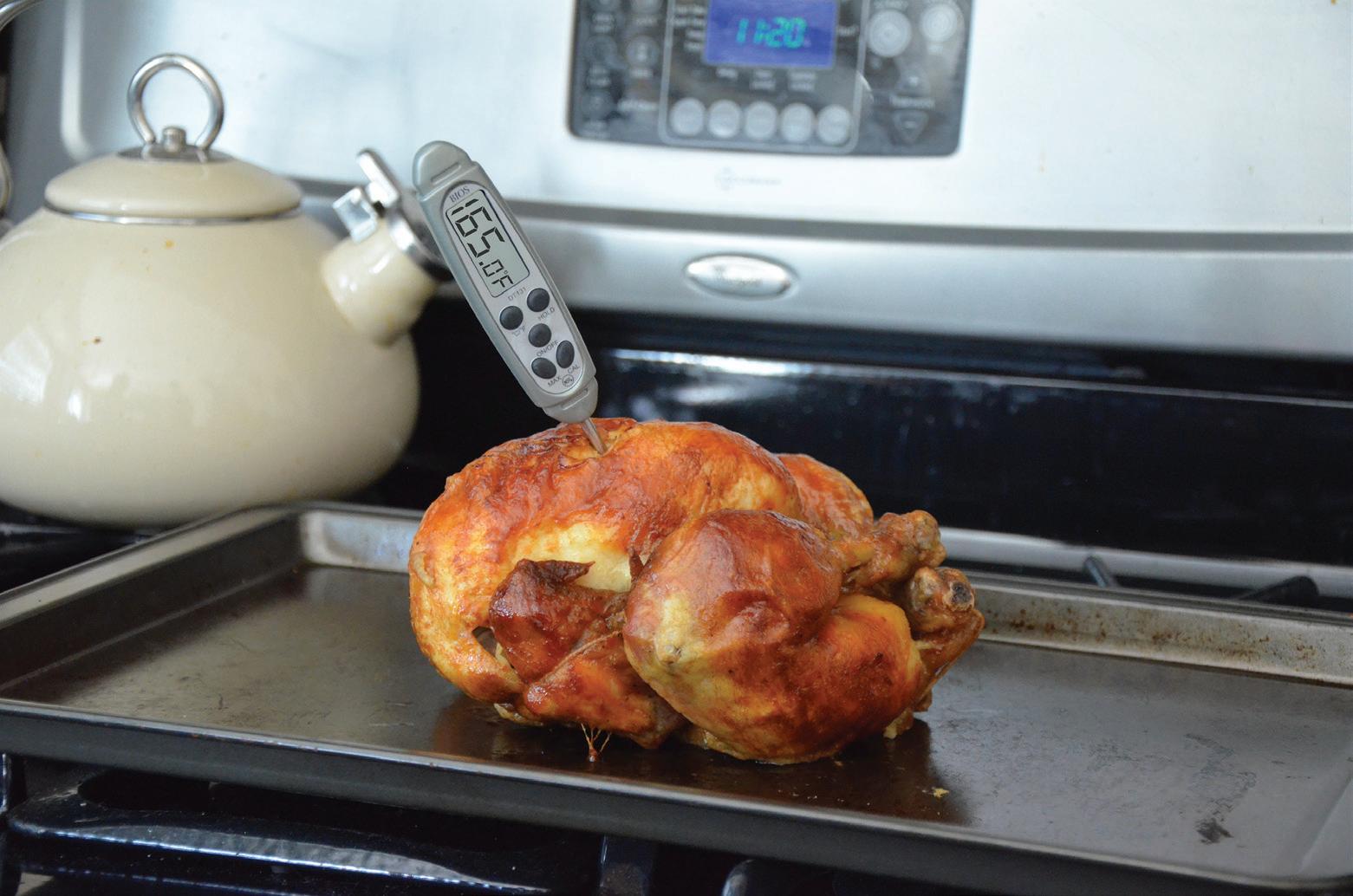
4 minute read
BETTER SAFE
When you stop to think that Canada’s 84,000 restaurants and commercial dining establishments serve more than5.4 billion meals each year, it might not be a surprise to learn that there are approximately4.8 million confirmed cases of foodborne illness in this country annually.
That equates to about 1 in 8 Canadians getting sick from a meal made in a commercial kitchen every year.
Advertisement
WITH THE ODDS firmly against you, the best route for an efficient restaurant is through keeping it safe enough so that municipal, provincial, and federal health inspectors give you the passing grade and avoid being forced into temporary closure. “Your restaurant might have the nicest views, the best chefs, gorgeous equipment, and an amazing menu, but that means nothing if you don’t have a food safety program in place,” says Jennifer Pulis, Vice President, Sales of BIOS Medical, whose Thermor division sells thermometers to the restaurant industry.

- JENNIFER PULIS
Pulis works with those in the foodservice industry to ensure they understand the risks they face in working with food and take the right precautions to keep their restaurants safe – and open. “Your key responsibility is to be efficient,” she says. She helps her clients by showing them what health inspectors are looking for and how to pass inspection. So, what are inspectors looking for? She says there are three main areas of interest:
EMPLOYEE HYGIENE: Here’s a disturbing statistic for you: According to a 2018 study, 42 per cent of Canadians don’t wash their hands after using the bathroom. The good news is that the study also showed that posting a sign above the sink encouraging people to wash actually works. And it’s not just washing hands, staff need to be aware of what they’re doing near food and avoid things like coughing, scratching, touching their face and playing with their hair. Friendly reminders are a relatively easy way to encourage your staff to follow protocol consistently, keeping them, your customers, and their food safe.
SANITATION: Sanitation starts with keeping everything clean. Everything. Utensils, handles, doors, fridges, faucets, mixers, slicers, cutting boards – if it has a surface, you need to keep it clean. That’s pretty basic. Equally basic is the need to keep your fresh meats and produce clean.
Things become more complex when you start thinking about cross-contamination, the unintentional transfer of harmful bacteria from one surface to another. “When you take a thermometer out of one piece of meat and put it into another without cleaning it properly, you’ll get crosscontamination,” Pulis says.
Thoroughly cleaning your instruments and utensils after each use is one way to avoid crosscontamination. Storing uncooked meats, seafood, and produce separately is another.
As a restaurant owner, you can help hold your staff accountable for keeping things clean by having a routine checklist, daily task assignment, and frequent monitoring to ensure the tasks are being completed when and as often as they’ve been prescribed.
FOOD SAFETY: Any food can cause a foodborne illness if it’s not properly prepared. Acidity, time, temperature, oxygen, and moisture can all cause harmful bacteria growth, so Pulis says kitchen staff need to be vigilant against all of them.
“There are so many things to monitor,” Pulis says. “Food goes through different stages, and there are steps that need to be taken at every stage.” She recommends temperature checks when receiving and storing food, during freezing, thawing, refrigeration, cooking, hot holding, cooling, and reheating. “Each of these stages is an opportunity for bacteria to get into food,” she says. “It only takes 20 minutes for bacteria to double and food to spoil, so with the right precautions at the right time, you can save a lot of trouble.”

Food safety is a serious consideration in the foodservice industry. It needs to be made a priority and a responsibility of each team member. It is critical to educate your staff, not by just simply telling them what to do but explaining why it needs to be done can certainly help them adhere to the expectations and thereby protect your customers and ultimately, the operation of your restaurant.






